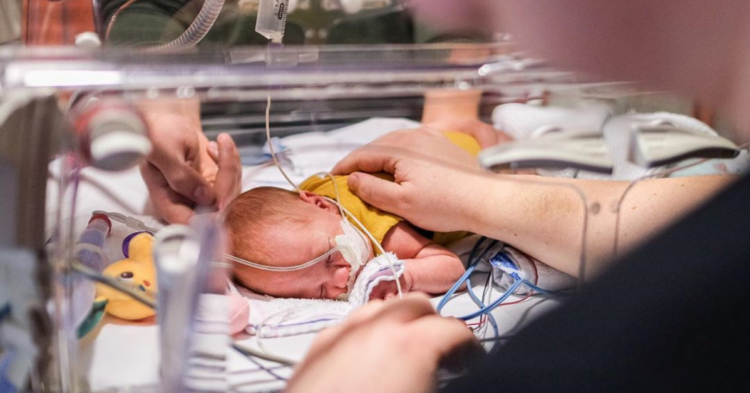The survival rates for babies born premature have doubled according to a series of studies, which could lead to a change in the way that doctors treat premature babies.
A decade ago, survival rates were far from good for premature babies.

A decade ago, if a baby was born before 23 weeks, then the odds would dictate that the baby would tragically not survive. This is due to the fact that in 2008, on average only two out of ten babies born at 23 weeks would survive, according to a study covered by the British Association of Perinatal Medicine
However, nowadays, the numbers have risen to four in ten!
For premature babies the guidelines for the baby’s care were different.

Guidelines for the treatment of babies born before 23 weeks of pregnancy suggested that doctors should offer palliative care to the babies, in order to make them more comfortable.
However, in 2016 studies have shown that 35% of the premature babies who received active care as opposed to palliative, were still alive over a year on.
This has prompted people to ask for a change in the guidelines.

And, as of yesterday, the British Association of Perinatal Medicine published new guidelines that say that the higher survival rates of premature babies mean that doctors should routinely attempt to resuscitate babies born prematurely.
However, the new guidelines remained aware of the low survival rate.

Though the chances of survival are much better for premature babies, the survival rates are still meager. The new guidelines also made sure to emphasize that the wishes of the parents should be taken into consideration when deciding an approach to care.
One Professor has described the guidelines as dealing with “complex ethical decisions”.

Professor of medical ethics at the University of Oxford, Dominic Wilkinson, authored the new guidelines. He told the Daily Mail:
“What we encourage is the idea that decisions have to be made on a case by case basis, what we have to acknowledge is that it is appropriate to attempt intensive care for some babies born this early, those who have favourable risk factors where parents have been counselled and wish this to be tried.
“Other babies at 22 weeks with unfavourable risk factors may be at extremely high risk of dying or of suffering very severe complication and in that situation the framework recommends that palliative care would be the normal approach.”
One of the man problems that premature babies face is underdeveloped lungs.

Babies born before 23 weeks may not have fully developed lungs, which means that oxygen transport around their body is problematic, and can lead to serious, long-lasting medical issues as a result of oxygen starvation.
The amount of premature babies born each year is remarkably high.

According to the World Health Organisation , there are approximately 15 million babies born prematurely worldwide.
The United States is amongst the top 10 countries with the highest amount of preterm babies born each year, with over 500, 000 preterm babies per year. The UK has an estimated 60, 000 premature babies per year, according to Bliss .
The information has incited responses from pro-life campaigners.

Yes, pro-life campaigners stuck their oar in (because of course, they did) as (largely male) campaigners threw a heady blend of archaic dogmatic law largely laced with veiled misogyny into the mix. They also claimed that attempts to save babies born before the 24-week abortion limit was a “shocking contradiction”.
However, a spokesperson for the British Pregnancy Advisory Service made this statement:
“There is no contradiction between doing all we can so that babies born long before they are ready for the world have a chance of living, and ensuring that the very small number of women who need to end pregnancies in the final weeks of the second trimester, often in incredibly tragic and desperate circumstances can do so.”
Hopefully these new guidelines will help parents of premature babies for decades to come.

Having a child can be nerve-wracking, and so the fact that a mix of technological advances and these new guidelines are helping to increase the survival rate of premature babies is amazing. Hopefully, over time these statistics will continue to get better and better, and more premature babies can live a full and healthy life.
















































